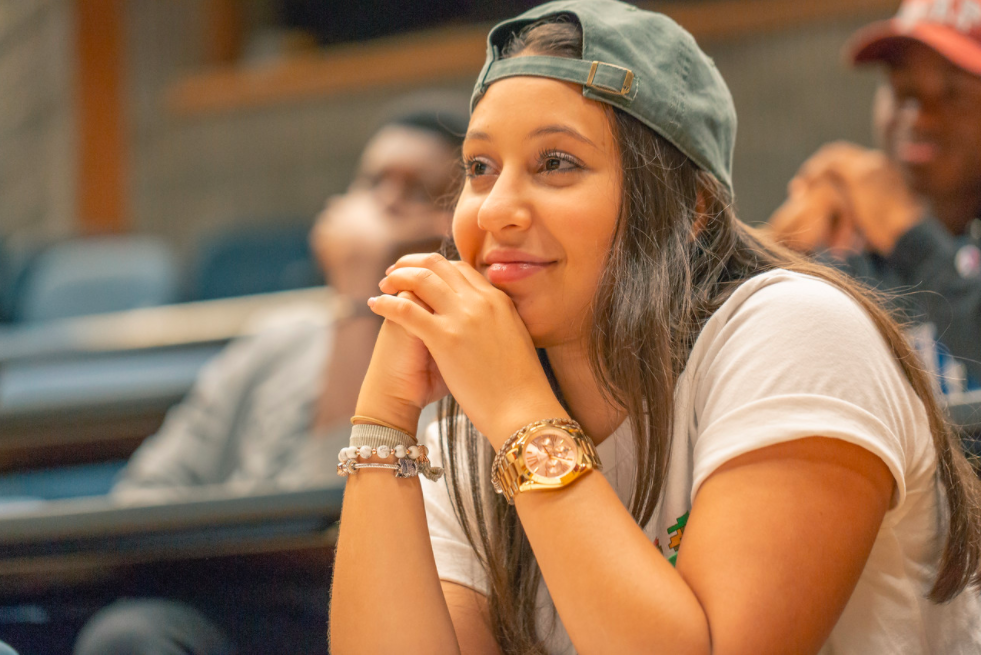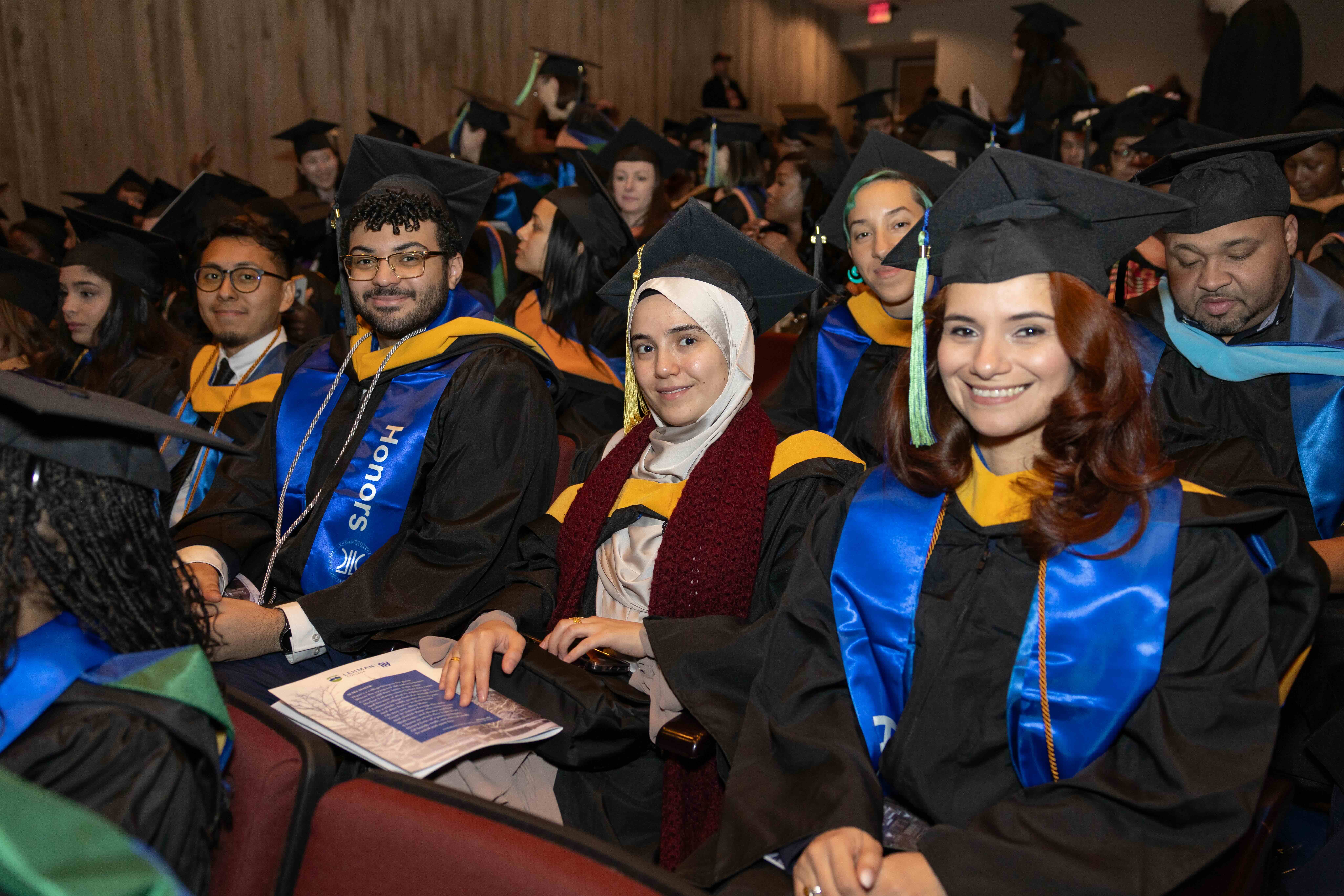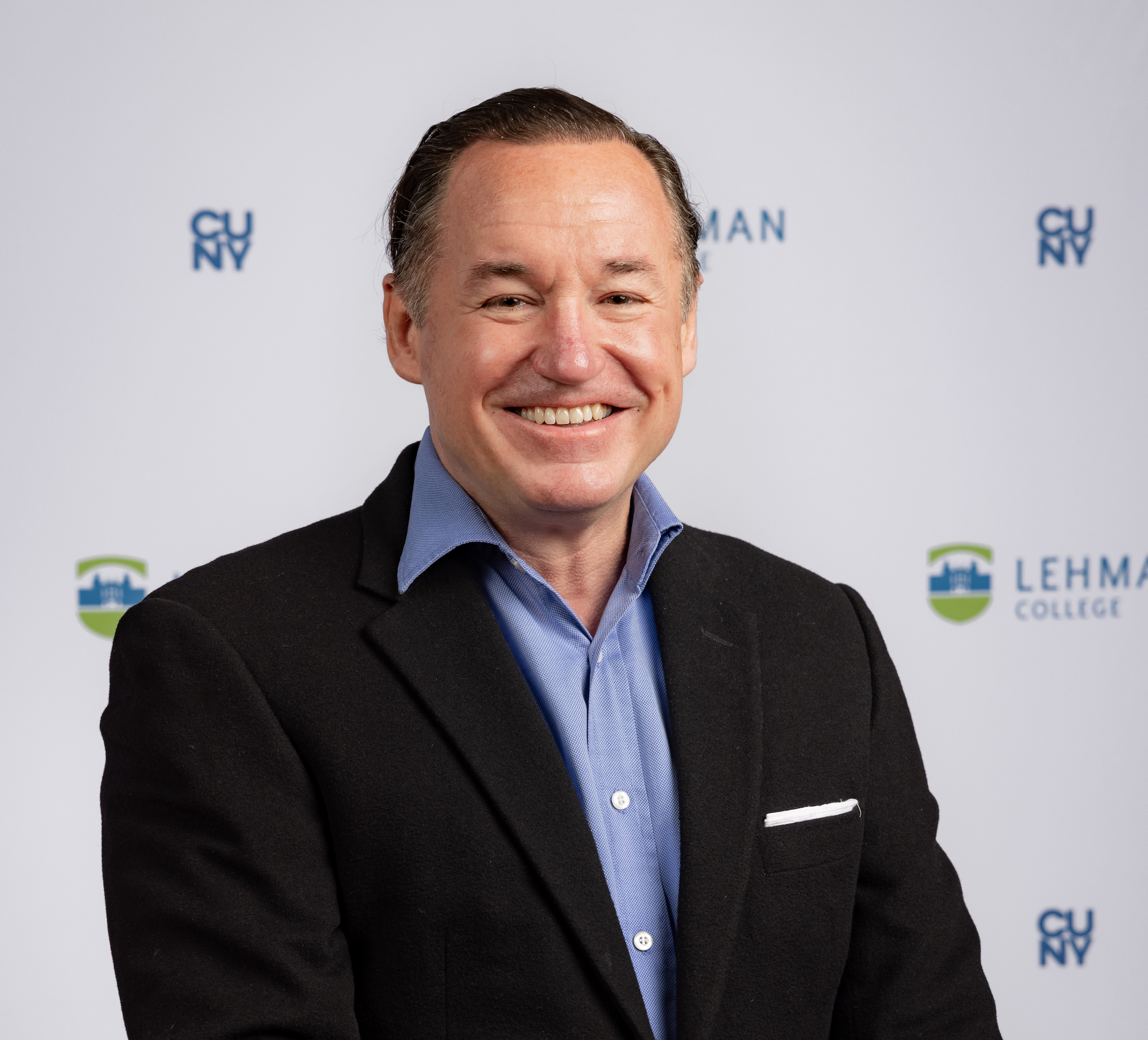- Lehman College >
- News >
- 2021 >
- Teagle Foundation, NEH Grant Will Help Reduce ‘Transfer Shock’ for Lehman Students This Fall
News
Search All News
Monday, January 26, 2026
CONTACT
Office Hours
Monday - Friday 9am - 5pmClosed Sat. and Sun.
RELATED STORIES
January 23, 2026
January 23, 2026
On BronxTalk, Lehman Professor Provides Insight on Venezuela
Teagle Foundation, NEH Grant Will Help Reduce ‘Transfer Shock’ for Lehman Students This Fall

January 12, 2021
Research has shown that transfer students often experience a difficult adjustment period after moving to a different institution—unlike first-time freshmen, they usually aren’t included in learning cohorts that introduce them to their new school, the community, and each other. That sense of disorientation can lead to “transfer shock,” a phenomenon in which students’ GPAs temporarily decrease.
For Lehman, it’s especially important to help students avoid such pitfalls: As of Fall 2020, nearly 65% of the school’s undergraduates—8,369 students—are transfers, with many having already earned an associate degree and looking to complete their bachelor’s degree.
As a result, the College is launching a new set of courses, Anchored in the Liberal Arts (ATLAS), to help incoming transfer students connect more deeply. It will be piloted in Fall 2021 and is now entering the planning stages thanks to a $25,000 grant to support faculty and course development from the Teagle Foundation, in partnership with the National Endowment for the Humanities. CUNY is also taking a closer look at the needs of this crucial student population across its institutions.
“Transfer students are [one of] the most neglected student groups in the United States,” said Karin Beck, associate dean of Arts and Humanities, who is overseeing the initiative. “They have a very short time to develop relationships and connections to the College.”
However, a program like ATLAS will help to fast track that. Its curriculum is based, in part, on similar core education programs at Purdue, Columbia, and Temple universities created for first-year students. The courses will be designed to promote a common understanding of Lehman values and the diversity of the Lehman community.
Like its institutional models, ATLAS will make use of transformative texts—major works of literature, such as Fyodor Dostoevsky’s Crime and Punishment or Chinua Achebe’s Things Fall Apart that provoke big questions and meaningful discussion, and have been read and discussed around the world. By delving into the struggles, inquiries, and ideas these texts foreground, students can more rapidly connect to global discourses and each other.
Most importantly, these texts can mediate conversations about difficult topics, and students’ shared experience of deep discussion will foster an intellectual community and a sense of belonging.
“Connecting [students] to other great people from all over the world who tackled difficult and enduring questions gives them a vocabulary and a community,” Beck said.
ATLAS’s planning stage is expected to yield a large pool of transformative texts from which faculty can choose as they design courses. Texts will ultimately be chosen for how well they speak to the strengths and values of the Lehman community.
Beck sees tremendous value in being able to start “a faculty conversation about texts we think represent our Lehman community in its diversity, its global background, its history,” she said. “That’s what really can have a major impact. What would a core text be that represents who we are?”
The first cohort will begin small, with 200 students and eight courses. Because transfer students in professional majors—health sciences, social work, and business, for example—have fewer opportunities to engage deeply with a liberal arts curriculum as they work toward their degrees, ATLAS will initially focus on students in these majors and use transformative texts to bridge perceived gaps between the liberal arts and professional fields. Down the road, faculty members hope to develop the program further into a full-fledged minor.
ATLAS will “show students in professional majors that general education is not about checking off some boxes but giving you what you need to become the person you want to be in your profession,” Beck said.
Assistant professor Mila Burns of the Department of Latin American and Latino Studies and LaRose Parris, an associate professor in the Department of Africana Studies, are co-leading the program. Burns believes the initiative will have profound benefits beyond improving the transfer student experience.
“There is an urgent need in U.S. academia to decolonize the syllabus,” Burns said. “Offering students access to transformational liberal arts texts, especially those written by authors who are still underrepresented, is not only empowering to students—it’s also an opportunity for faculty to be in closer contact with more diverse and richer perspectives. It means an improvement to classes, research, and to our communities.”









